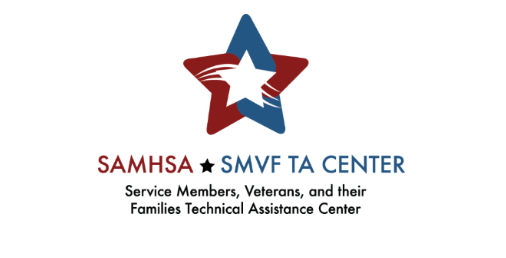Implementing Best Practices and Improving Collaboration for Crisis Care and Suicide Prevention among High-Risk SMVF

Implementing Best Practices and Improving Collaboration for Crisis Care and Suicide Prevention among High-Risk SMVF
Date: June 10, 2020
Time: 1:30 – 3:00 p.m. (ET)
Register: https://zoom.us/webinar/register/WN_h56pJmnYR2Wxv3LFQa1whw
With COVID-19 striking our crisis and public health systems, providers have been having increasing difficulty addressing the level of mental health needs caused by this life-changing virus. The Substance Abuse and Mental Health Services Administration’s (SAMHSA’s) Service Members, Veterans, and their Families (SMVF) Technical Assistance (TA) Center welcomes you to join a webinar focused on the core elements of the SMVF Crisis Intercept Map. The process of intercept mapping helps community stakeholders to visualize gaps, recognize opportunities, and strengthen coordination across local agencies and organizations. Screening for SMVF status and suicide risk early can change the trajectory of overload on our emergency response systems by increasing access to upstream support and diverting hospital emergency department visits to alternate care.
SMVF at risk of suicide often fall between the cracks in public health and emergency response systems. As environmental risk factors for suicide increase among SMVF and the general population, it is especially important to develop a targeted focus on the best practices that support those at high risk of suicide, while strengthening community behavioral health systems by supporting alternate pathways for effective care.
Moderator:
Donald Harris, M.B.A., Senior Project Associate, SAMHSA’s SMVF TA Center, Policy Research Associates, Inc.
Presenters
Richard McKeon, M.P.H., Ph.D., Chief, Suicide Prevention Branch, Division of Prevention, Traumatic Stress, and Special Programs, Center for Mental Health Services, SAMHSA
Misty Leitsch, B.B.A., B.S.W., Interim Executive Director, Tennessee Suicide Prevention Network; Director, Zero Suicide Initiative; Member, Clarksville and Tennessee Mayor’s and Governor’s Challenge Teams
Clifton “Brent” Arnspiger, L.C.S.W., Suicide Prevention Coordinator, Michael E. DeBakey U.S. Department of Veterans Affairs (VA) Medical Center; Member, Houston and Texas Mayor’s and Governor’s Challenge Teams
Learning Objectives
- Identify responses to suicidality by identifying SMVF risk factors, signs, and symptoms amidst a COVID-19 public health crisis
- Describe the SMVF intercepts and how they present opportunities for asking the questions, identifying Veteran status, and screening for suicide risk
- Address challenges linked with meeting the demands of COVID-19 and opportunities for SMVF suicide prevention approaches
- Discuss best practices, resources, and tools available for implementing crisis mapping recommended next steps
- Share specific prevention, postvention, and self-care for resources and protocols
Target Audience
Healthcare providers, first responders, crisis care providers, peers, Veterans’ organizations, caregivers, and military and Veteran families with specific substance use disorder and mental health needs.
Click on the following link to register prior to the event:
https://zoom.us/webinar/register/WN_h56pJmnYR2Wxv3LFQa1whw
After registering, you will receive a confirmation email containing information about joining the webinar.
Please note:
- Participants will only be able to hear the webinar through their computer via headphones or speakers
- Participants are asked to test their system before the broadcast
- The webinar archive will be made available to registrants after the webinar
- Continuing education units are not available for this webinar
If you have any questions about your registration, please contact Philip Paty at (518) 439-7415, ext. 5272, or by email at ppaty@prainc.com.


